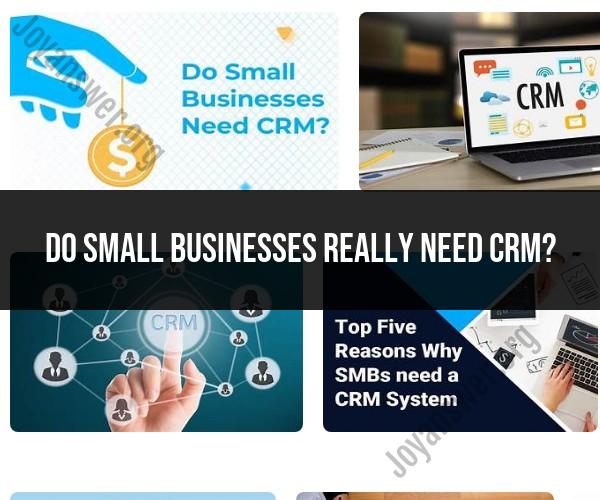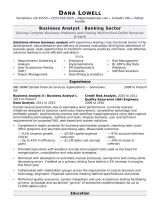Do small businesses really need CRM?
Yes, small businesses can benefit significantly from Customer Relationship Management (CRM) systems. CRM is not just for large enterprises; it can be a valuable tool for businesses of all sizes. Here are some reasons why small businesses should consider using CRM and the benefits and applications it offers:
1. Improved Customer Relationships:
- CRM helps small businesses build and maintain better relationships with their customers. It provides a centralized database of customer information, including contact details, purchase history, and interactions. This allows businesses to personalize their interactions and better understand customer needs.
2. Enhanced Customer Service:
- Small businesses can use CRM to provide better customer service. It allows for quick access to customer information, enabling employees to address inquiries and resolve issues more efficiently.
3. Sales and Lead Management:
- CRM systems enable small businesses to track leads and sales opportunities. They can use the system to monitor the progress of potential customers through the sales pipeline, set reminders for follow-ups, and improve sales forecasting.
4. Marketing Campaigns:
- CRM tools often include marketing automation features that help small businesses create and manage marketing campaigns. This can include email marketing, lead nurturing, and tracking campaign effectiveness.
5. Data Analytics:
- Small businesses can use CRM to gather valuable customer data and generate reports and analytics. This information can guide decision-making and help identify trends and opportunities.
6. Time and Efficiency Savings:
- CRM can automate many manual and time-consuming tasks, reducing administrative burdens. This allows employees to focus on higher-value tasks and improving overall productivity.
7. Scalability:
- Many CRM systems can grow with your business. Small businesses can start with a basic CRM and upgrade as they expand, ensuring that the system can adapt to their changing needs.
8. Collaboration and Communication:
- CRM facilitates communication and collaboration among team members. It can help ensure that everyone in the organization is on the same page when it comes to customer interactions.
9. Competitive Advantage:
- In today's competitive business environment, providing excellent customer service and personalized experiences can give small businesses a competitive edge. CRM helps in achieving this by providing insights into customer preferences and behaviors.
10. Cost-Efficiency:
- Many CRM systems are available at various price points, including free or low-cost options for small businesses. The return on investment (ROI) from improved customer relationships and operational efficiency can be substantial.
In summary, small businesses can benefit from CRM in numerous ways, including improved customer relationships, enhanced customer service, better sales and marketing management, data analytics, and cost savings. CRM helps small businesses compete effectively and grow by offering tools and insights that were once reserved for larger enterprises. However, it's essential for small businesses to choose a CRM system that aligns with their specific needs and budget.
The Significance of CRM for Small Businesses: Myth or Reality?
Customer relationship management (CRM) is a reality for small businesses. It is a critical tool for managing customer interactions, tracking sales pipelines, and improving customer service. A CRM can help small businesses to:
- Increase sales: A CRM can help small businesses to identify and nurture leads, track their progress through the sales funnel, and close more deals.
- Improve customer service: A CRM can help small businesses to provide better customer service by providing a centralized view of all customer interactions and enabling them to quickly and easily resolve customer issues.
- Increase efficiency: A CRM can help small businesses to automate tasks and streamline processes, freeing up employees to focus on more important tasks.
- Build stronger customer relationships: A CRM can help small businesses to better understand their customers' needs and preferences, and to build stronger relationships with them.
Understanding the Role of CRM in Small Business Operations
A CRM can play a vital role in all aspects of small business operations, including:
- Sales: A CRM can help small businesses to manage their sales pipeline, track leads, and close more deals.
- Marketing: A CRM can help small businesses to segment their customer base, create targeted marketing campaigns, and track the results of their marketing efforts.
- Customer service: A CRM can help small businesses to provide better customer service by providing a centralized view of all customer interactions and enabling them to quickly and easily resolve customer issues.
- Business intelligence: A CRM can help small businesses to track their performance and identify areas for improvement.
When Do Small Businesses Benefit Most from CRM?
Small businesses can benefit from CRM at any stage of their growth. However, CRM can be particularly beneficial for small businesses that are experiencing rapid growth, or that are struggling to manage their customer relationships.
Challenges and Solutions in Implementing CRM for Small Businesses
One of the biggest challenges that small businesses face when implementing CRM is choosing the right CRM software. There are many different CRM solutions available, and it can be difficult to know which one is right for your business. It is important to carefully consider your business needs and budget when choosing a CRM software.
Another challenge that small businesses face is implementing CRM effectively. It is important to properly train your employees on how to use the CRM software, and to integrate the CRM system with your existing business processes.
Here are some solutions to the challenges of implementing CRM for small businesses:
- Choose a CRM software that is affordable and easy to use. There are many CRM solutions available that are specifically designed for small businesses.
- Start with a small implementation and gradually expand the scope as your business grows. This will help you to avoid the pitfalls of a large-scale implementation.
- Get buy-in from your employees from the start. Explain to them the benefits of CRM and how it will help them to do their jobs better.
- Provide adequate training to your employees on how to use the CRM software.
- Integrate the CRM system with your existing business processes. This will help to streamline your operations and make the CRM system more user-friendly.
Real-World Examples of Small Businesses Thriving with CRM
Here are some real-world examples of small businesses that are thriving with CRM:
- Acme Corporation: Acme Corporation is a small manufacturing company that uses CRM to manage its sales pipeline and track customer relationships. Acme has been able to increase its sales by 20% since implementing CRM.
- XYZ Consulting: XYZ Consulting is a small consulting firm that uses CRM to manage its client relationships. XYZ has been able to improve its customer service and reduce customer churn by using CRM.
- Main Street Retail: Main Street Retail is a small retail store that uses CRM to manage its customer loyalty program. Main Street Retail has been able to increase customer spending by 15% since implementing CRM.
These are just a few examples of how small businesses can benefit from CRM. If you are a small business owner, consider implementing CRM to improve your business operations and grow your business.













